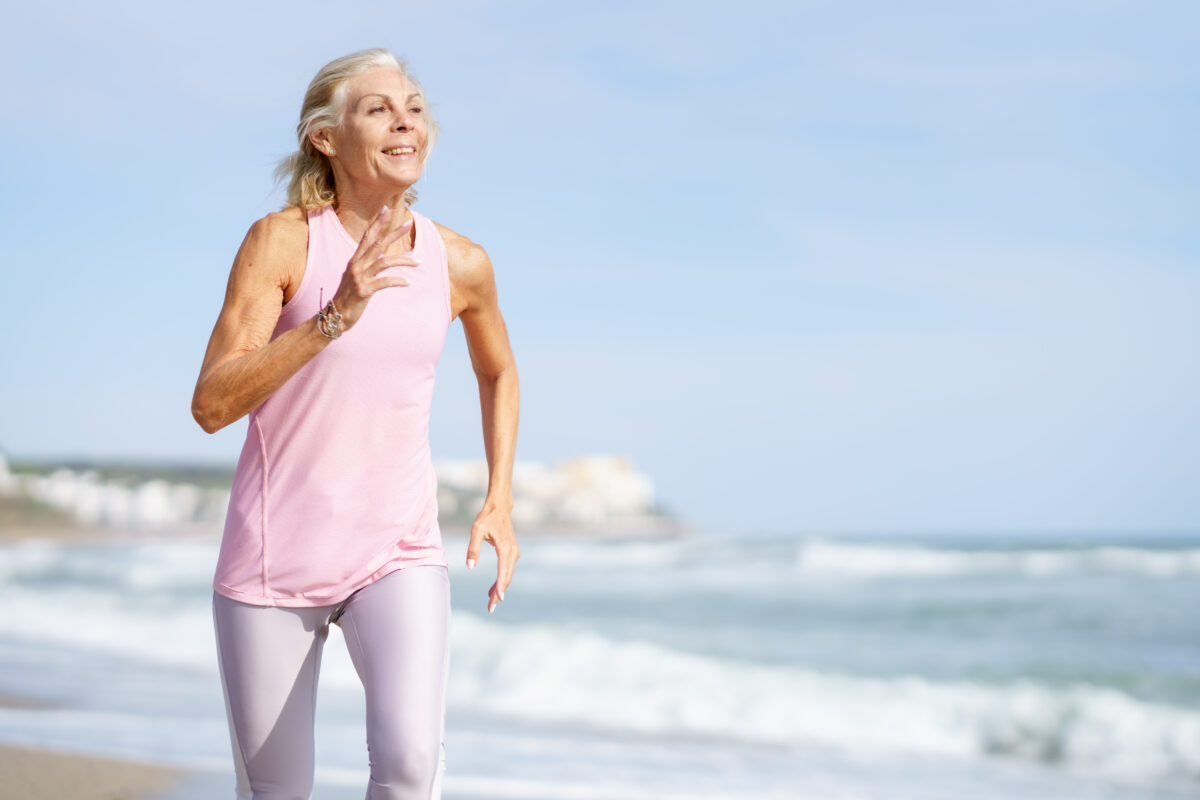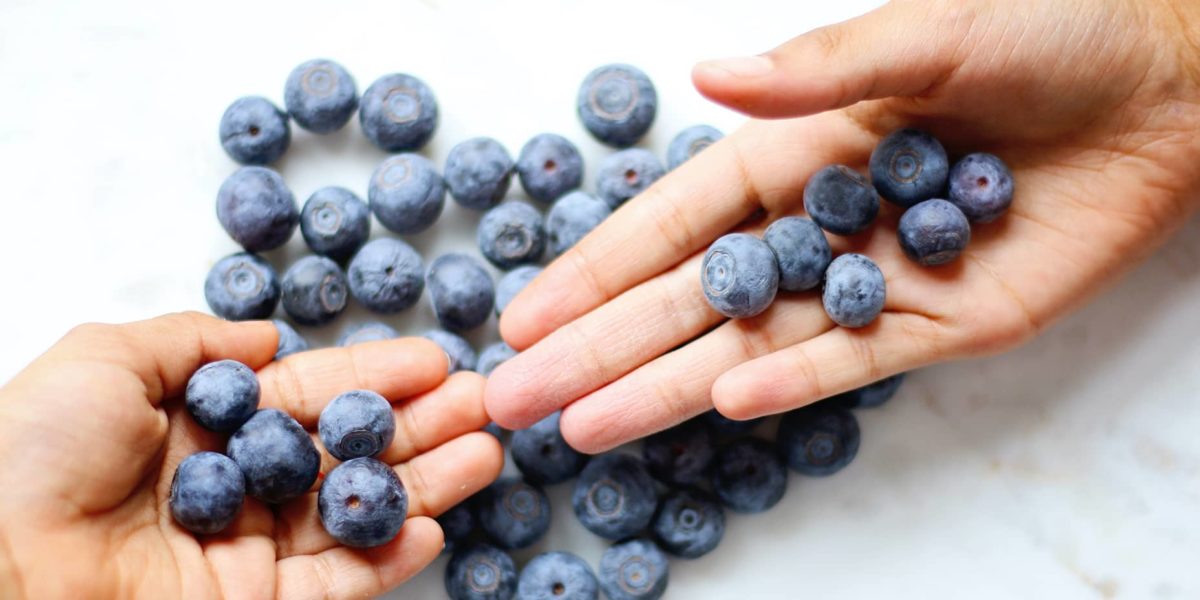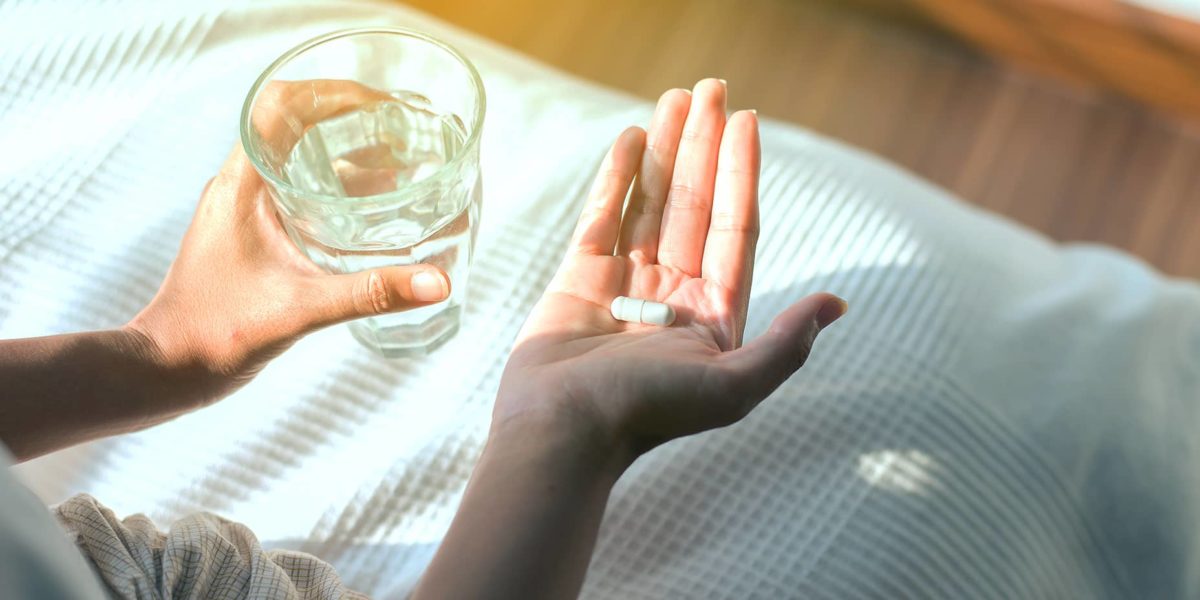So you went in for a bone density scan, and it turns out your bone mineral density (BMD) isn’t where you want it to be. Your first thought is probably: Can bone density be built back up?
It’s understandable that you may be a little concerned about the loss of bone integrity, but the good news is that, yes, you can rebuild your bones and turn back the clock on potential complications like osteopenia and osteoporosis.
This article will highlight five key all-natural steps you can take to rebuild and maintain strong bones, no matter what your scans show.
5 Ways to Rebuild Bone Density
Exercise Your Way to Healthy Bones
Exercise stimulates osteogenesis, the development and formation of bones. While all activity, particularly weight-bearing and resistance exercise, can help maintain bone integrity, improving bone mineral density takes a well-rounded workout routine.
If you can withstand high intensity, one study on women aged 35 to 40 indicated that high-impact exercise is effective in improving bone mineral density1. But not everyone can tolerate this type of stress.
A high-impact routine where “jumping” moves were performed in water may help cushion your joints from shock absorption. One study performed on 25 postmenopausal women showed significant increases in lumbar spine, femur, and whole body BMD in the group that completed high-intensity, jump-based exercises in a pool2 compared to the control group.
This isn’t to say that our most natural form of movement — walking — doesn’t impact BMD. It does. One meta-analysis of research that included the findings of 10 studies found that walking has a significant positive effect3 on lumbar BMD, but not on femur (thigh bone) or calcaneus (heel bone) bone mineral density.
Other exercises known to improve BMD include other weight-bearing movements like stair climbing, jogging, and tai chi. Strengthening and resistance training, such as lifting weights and other forms of resistance4 like swimming will also do the trick.

One meta-analysis of 24 clinical trials suggests that combining resistance training with high-impact or other weight-bearing exercise significantly impacted BMD,5 so circuit training or bootcamp-style workouts that combine strength and conditioning can help you make the most of your time.
At the end of the day, moving in any way will benefit you. Remember, your level of exertion is unique to you — there’s no need to keep up with your workout buddies.
Make Food Your Medicine
Which foods increase bone density? The short answer is any foods that support bone mineralization and help you avoid inflammation.
Inflammation is one of the primary culprits behind bone loss, and one of the best ways to manage inflammation6 is through your diet. Generally speaking, a whole food diet filled with a variety of organic fruits and vegetables and plenty of protein will provide your body with the nutrients it needs to function optimally.
With that being said, some stand-out nutrients directly support the health of your bones; these include:
Calcium
Your body can’t make its own calcium, but this mineral is essential for the health and integrity of your bones. In fact, about 65% of your bone tissue7 is made up of calcium. Therefore, if you want strong bones, you must get adequate calcium into your diet.
Calcium can be found in dairy products like milk and yogurt, as well as sardines, soybeans, and salmon.
Vitamin D
Vitamin D is crucial for the absorption of calcium; when vitamin D is low, you’re unable to get calcium to your bones. This means you could consume as much calcium as you like, but it will do little good for your skeletal health8.
Vitamin D can be found in fatty fish like salmon and sardines, as well as eggs and some mushrooms.
Vitamin C
Vitamin C plays an essential role in your bone matrix9 as it assists in the production of collagen, another essential component of bone tissue.
Citrus fruit is a fantastic source of vitamin C, along with vegetables like bell peppers and fruit like tomatoes.
Magnesium
Magnesium is another mineral that’s essential for the formation of bones, specifically as a component of hydroxyapatite, a crystalline structure in your bones. Furthermore, low levels of magnesium10 can impact the activity of your parathyroid hormone, which is intimately involved in bone health.
Some foods high in magnesium include pumpkin seeds, spinach, almonds, and cashews.
Vitamin K2
Vitamin K2 ensures that calcium is deposited in your bones11 and not in the soft tissues and blood vessel walls. Vitamin K can be found in a variety of green leafy vegetables like kale, spinach, and broccoli.
Protein
Research shows that protein may support your bones in several ways, including parathyroid regulation and enhancing calcium absorption12.
If you’re already getting substantial protein in your diet, great. However, some studies suggest that older people may need slightly more protein than the RDA13 to maintain strong bones (1.1 g/kg per day versus 0.8 g/kg per day) — so don’t skimp on this one.

Get Adequate Sleep
There are endless reasons why a good night of sleep should be a priority for anyone looking to maintain or improve health — and yes, BMD is one of them.
Research shows that short sleep duration is associated with lower BMD and a higher risk of osteoporosis. How short is short? In one study, short sleep duration14 was defined as five hours per night or less.
However, keep in mind that everyone’s body is different and restful sleep is often better assessed through how you feel versus the time on the clock.
Exactly how sleep impacts BMD is unclear, but some research suggests that your sleep rhythms (circadian clock) may impact bone remodeling. Specifically, it appears that genes that regulate your sleep cycle may also impact the regulation of bone mass15.

Take a Daily Calcium Supplement
You already got the message that food plays a crucial role in bone density, but sometimes diet won’t always cut it. If you already have low BMD, taking a daily calcium supplement is one of the most important things you can do to turn your bone health around.
But here’s the deal; not all calcium supplements are created equal. There are some crucial differences between standard calcium pills and well-formulated supplements. As you learned, there are several nutrients that promote bone health and assist in calcium absorption. These nutrients include magnesium, vitamin D, vitamin K2, vitamin C, and magnesium.
So keep an eye out for a supplement that not only contains calcium but also incorporates these essential helpers.

Avoid Smoking and Excessive Alcohol Consumption
Several studies have shown a correlation between cigarette smoking and osteoporosis. Although the reasons that smoking causes issues with bone health are unclear, the data suggest that if you want to keep your bones strong, put down the smokes.
Another vice to keep an eye on is alcohol consumption. Research shows that alcohol can interfere with calcium absorption, as well as the synthesis of vitamin D [14]. This is a double whammy for your bones, so keep an eye on how many glasses of wine you enjoy per week. The fewer, the better.
Takeaway
It’s never fun getting less than optimal test results back. With that being said, in the case of bone mineral density, a poor reading doesn’t mean you’re destined for brittle bones.
Get your bone health back on track by moving your body in a way that pushes you (without too much strain), make sleep a priority, focus on nutrient-dense foods, pick up a high-quality calcium supplement, and as best as you can, try to keep bone-dissolving vices like smoking and drinking at bay.
References
- Vainionpää, A., Korpelainen, R., Leppäluoto, J. et al. Effects of high-impact exercise on bone mineral density: a randomized controlled trial in premenopausal women. Osteoporos Int 16, 191–197 (2005).
- Antonio Michel Aboarrage Junior, Cauê V. La Scala Teixeira, Rodrigo Nolasco dos Santos, Alexandre Fernades Machado, et al. Rejuvenation Research. Dec 2018. 535-540.
- Palombaro, Kerstin M PT, MS Effects of Walking-only Interventions on Bone Mineral Density at Various Skeletal Sites, Journal of Geriatric Physical Therapy: December 2005 – Volume 28 – Issue 3 – p 102-107
- Benedetti, Maria Grazia, et al. “The effectiveness of physical exercise on bone density in osteoporotic patients.” BioMed research international 2018 (2018).
- Zhao, R., Zhao, M. & Xu, Z. The effects of differing resistance training modes on the preservation of bone mineral density in postmenopausal women: a meta-analysis. Osteoporos Int 26, 1605–1618 (2015).
- Hardy, Rowan, and M. S. Cooper. “Bone loss in inflammatory disorders.” Journal of Endocrinology 201.3 (2009): 309-320.
- https://med.libretexts.org/Courses/Sacramento_City_College/SCC%3A_Nutri_300_(Coppola)/Text/8%3A_Water_and_Minerals/8.6%3A_Major_Minerals/8.6B%3A_Calcium
- Lips, Paul, and Natasja M. Van Schoor. “The effect of vitamin D on bone and osteoporosis.” Best practice & research Clinical endocrinology & metabolism 25.4 (2011): 585-591.
- Chin, Kok-Yong, and Soelaiman Ima-Nirwana. “Vitamin C and bone health: evidence from cell, animal and human studies.” Current drug targets 19.5 (2018): 439-450.
- Castiglioni, Sara, et al. “Magnesium and osteoporosis: current state of knowledge and future research directions.” Nutrients 5.8 (2013): 3022-3033.
- Maresz, Katarzyna. “Proper calcium use: vitamin K2 as a promoter of bone and cardiovascular health.” Integrative Medicine: A Clinician’s Journal 14.1 (2015): 34.
- Mangano, Kelsey M., Shivani Sahni, and Jane E. Kerstetter. “Dietary protein is beneficial to bone health under conditions of adequate calcium intake: an update on clinical research.” Current opinion in clinical nutrition and metabolic care 17.1 (2014): 69.
- Wallace, Taylor C. “Optimizing dietary protein for lifelong bone health: a paradox unraveled.” Nutrition Today 54.3 (2019): 107-115.
- Ochs‐Balcom, Heather M., et al. “Short sleep is associated with low bone mineral density and osteoporosis in the women’s health initiative.” Journal of Bone and Mineral Research 35.2 (2020): 261-268.
- Swanson, Christine M., et al. “The importance of the circadian system & sleep for bone health.” Metabolism 84 (2018): 28-43.





Judy
July 10, 2022 , 7:40 amWhen taking AlgaeCal does one also take prescription drugs like bone medications?